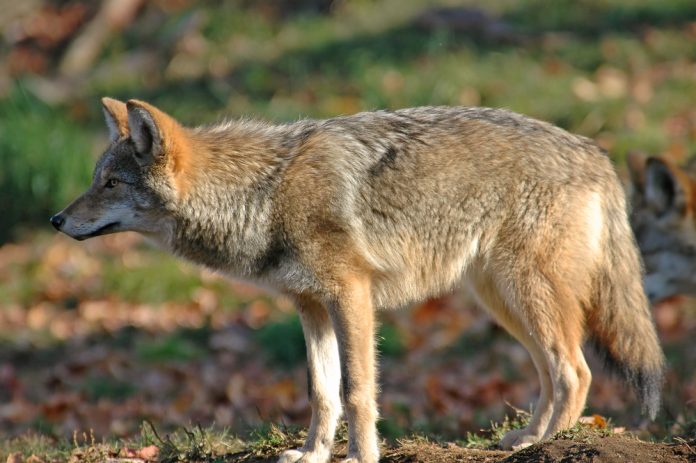The increasing presence of coyotes in the Bergen County area has raised concerns among residents, especially those with young children and pets. In this comprehensive guide, we’ll delve into the world of coyotes in Bergen County, offering valuable insights, safety tips, and information to help you coexist peacefully with these adaptable creatures.
Why Are Coyotes Thriving in Bergen County, NJ?
Coyotes have firmly established themselves in the Bergen County-North Jersey area due to their remarkable adaptability. These intelligent creatures effortlessly adjust to their surroundings and make use of whatever resources are available. While their primary diet consists of rodents and rabbits, they are opportunistic feeders, scavenging from garbage, pet food, and occasionally domestic animals.
As humans have expanded into previously rural areas, urbanization has created environments that are ideal for coyotes. Suburban and urban areas provide a wealth of food sources, including rodents drawn to human settlements, small mammals, and even discarded food waste. This adaptability has allowed coyotes to thrive in Bergen County and beyond.
Identifying Coyotes: How to Distinguish Them from Foxes
Coyotes are a common sight year-round in Bergen County. They share the landscape with foxes, which can sometimes lead to confusion. Here’s how to distinguish between the two:
- Size and Appearance:
- Coyotes are generally larger and taller than foxes, with long limbs, snouts, and ears. Their face resembles that of a dog.
- Foxes have larger, pointier ears and shorter legs compared to coyotes.
- Coyotes typically have scruffy gray or brown coats, while foxes come in a variety of colors.
- Foxes have bushier tails and are lighter in weight than coyotes.
- Behavior:
- Coyotes are often found in packs or pairs, whereas foxes are more solitary in nature.
Both coyotes and foxes are potentially dangerous and should be approached with caution. Maintaining a safe distance is crucial.
When and Where You May Encounter Coyotes
Coyotes are primarily nocturnal creatures, but spotting one during the day doesn’t necessarily indicate aggression or illness. If a coyote retreats upon seeing you, it’s displaying natural behavior. However, if it doesn’t run away and appears habituated to human presence, this could be due to previous feeding, which should be avoided. Such behavior may also indicate rabies, and in such cases, it’s essential to leave the animal alone and report it.
Interestingly, coyotes are quite active during winter, especially in January when they’re breeding, making sightings more common.
Coyote Behavior and Potential Threats

While coyotes can be intimidating, actual attacks on humans are rare. However, conflicts between humans and coyotes are more likely when adult coyotes search for food for their pups during spring and summer.
If a coyote bites a person, it may need to be specifically targeted and removed. Most health departments in New Jersey require rabies testing, which usually involves euthanizing the offending coyote. Therefore, it’s crucial to avoid situations that may lead to aggressive encounters.
Coyote Safety Tips and Precautions
The New Jersey State Division of Fish and Wildlife offers these safety precautions when encountering a coyote in Bergen County:
- Maintain Distance: Always keep a safe distance from coyotes and never attempt to approach them.
- Appear Large and Loud: If you encounter a coyote, make yourself appear as big and loud as possible to intimidate the animal.
- Don’t Run or Turn Your Back: Running may trigger a chase instinct in coyotes. Instead, slowly back away while facing the coyote.
- Secure Garbage Cans: Ensure that garbage cans are securely closed to prevent attracting coyotes with food scraps.
- Protect Your Pets: Do not leave small pets unattended outside, especially during dawn and dusk when coyotes are most active.
- Emergency Contact: If you feel threatened by a coyote or witness unusual behavior, call 911.
By following these guidelines and respecting the natural behavior of coyotes, you can coexist peacefully with these creatures in Bergen County, NJ.
The Role of Coyotes in Ecosystems
Understanding the role of coyotes in ecosystems is essential for appreciating their presence in Bergen County. Coyotes play a vital role in maintaining the balance of local wildlife populations. They primarily feed on small mammals like rodents, helping control their numbers. This natural form of pest control can benefit local communities by reducing the prevalence of disease-carrying rodents.
Coyotes also serve as scavengers, cleaning up carrion (dead animals) and helping to prevent the spread of diseases that can affect other wildlife and even domestic pets. In this way, they contribute to the overall health of the local ecosystem.
Coexisting with Coyotes
To coexist harmoniously with coyotes in Bergen County, consider the following additional tips:
- Educate Yourself: Stay informed about coyote behavior, habitats, and local regulations regarding wildlife management.
- Secure Your Property: Minimize attractants by securing garbage cans, removing pet food from outdoors, and ensuring small pets are not left unattended.
- Wildlife-Friendly Landscaping: Implement landscaping practices that discourage wildlife from seeking refuge near your home, such as removing dense vegetation and sealing potential den sites.
- Reporting Sightings: If you encounter a coyote exhibiting unusual behavior or suspect a problem with habituation, report it to local wildlife authorities.
Living in Harmony with Bergen County’s Coyotes
Coyotes have become a part of the local ecosystem, and understanding their habits and behavior is essential for a harmonious coexistence. With the right precautions, you can enjoy the natural beauty of Bergen County while keeping your family and pets safe.
By respecting these intelligent creatures and following safety guidelines, you contribute to the preservation of the balance of nature in this thriving region. Remember, coyotes play a vital role in our ecosystem.
Read more about coyotes in New Jersey.
Share this mybergen.com post!












